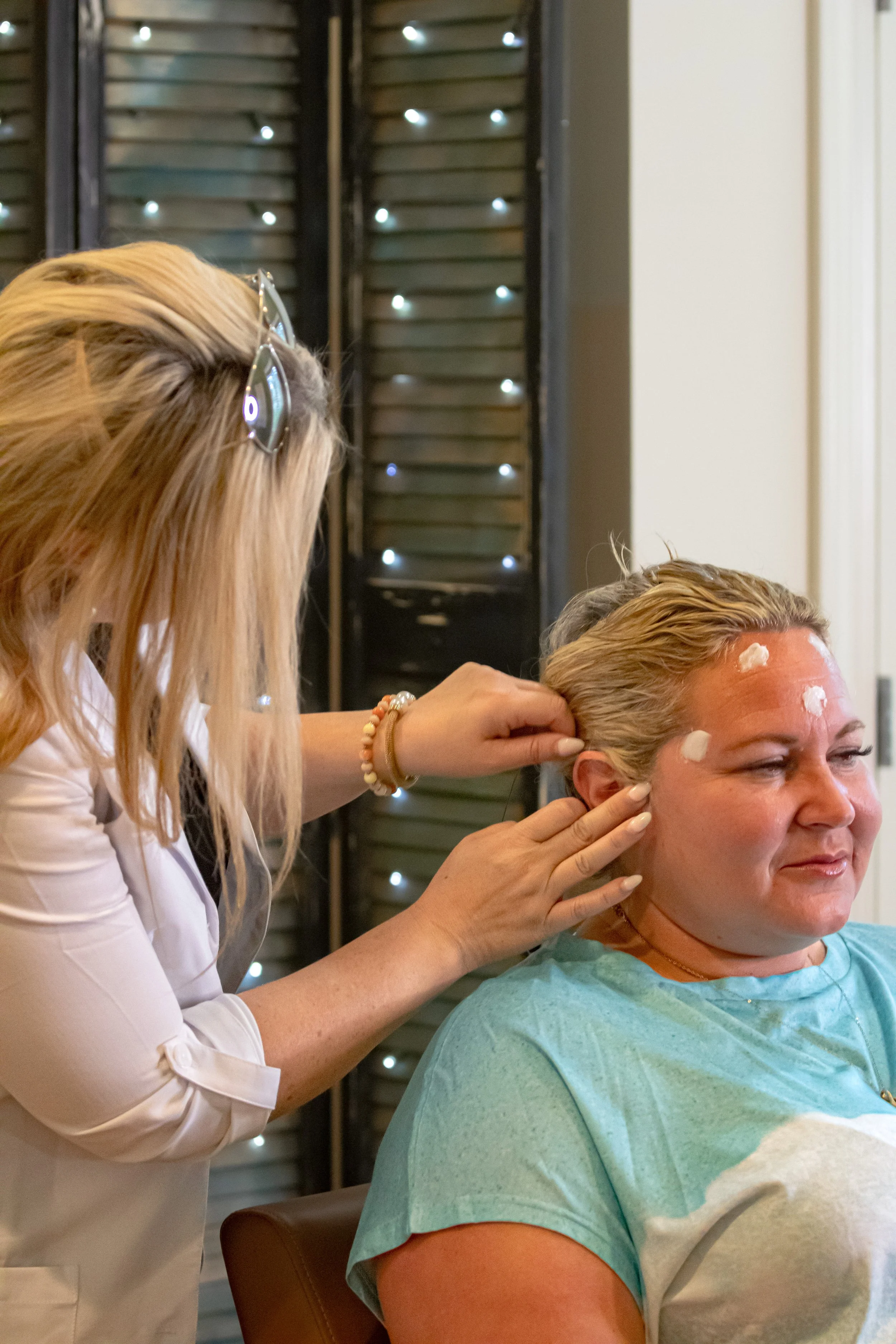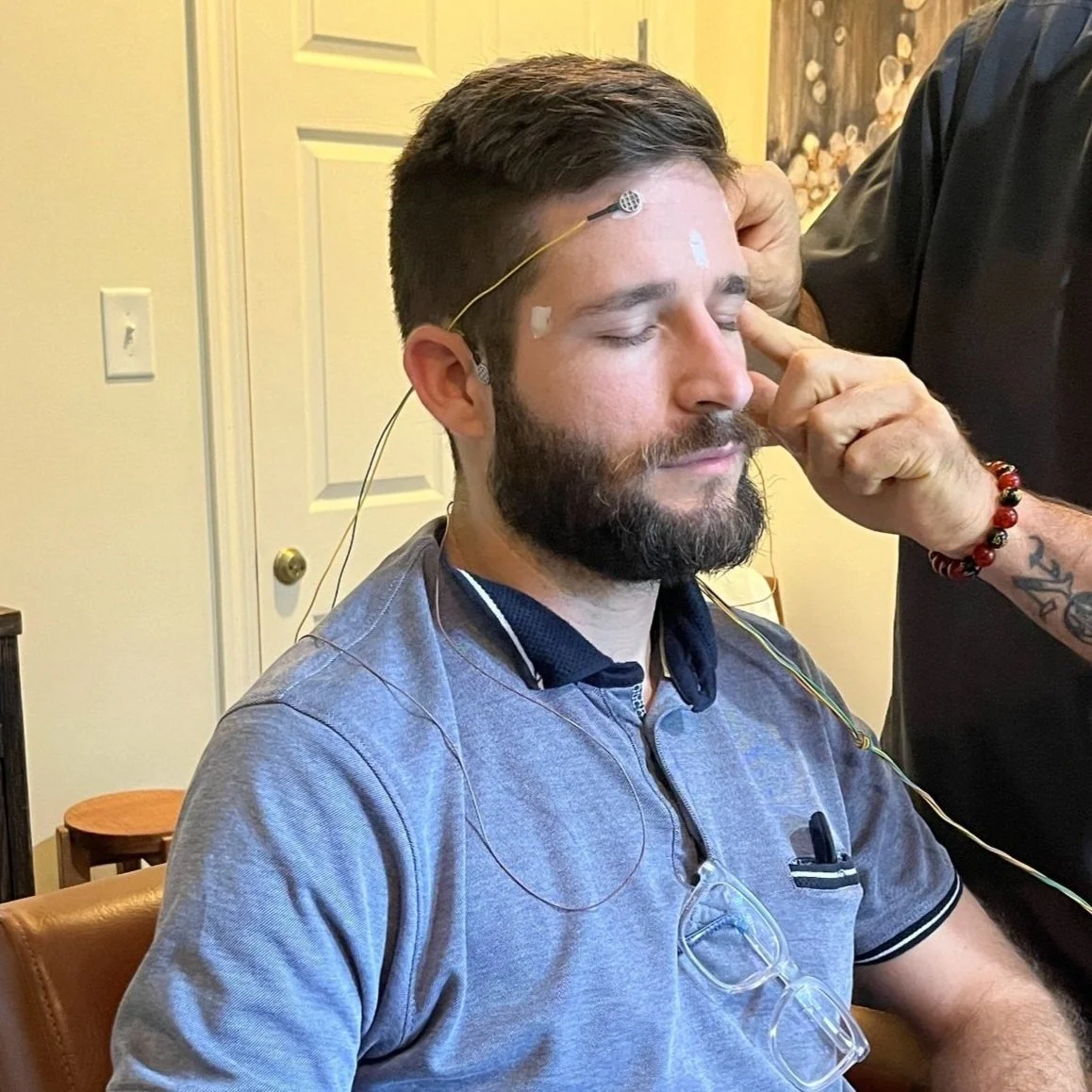Microcurrent Neurotherapy for PTSD
Microcurrent Neurotherapy for PTSD
Microcurrent Neurotherapy (MCN), also called IASIS microcurrent neurofeedback, is a gentle, non-invasive therapy that uses tiny electrical signals to help your brain “reset” itself.
Small sensors placed on your scalp send microcurrents that encourage the brain to release old, stuck patterns often linked to stress, anxiety, and trauma.
People with PTSD (post-traumatic stress disorder) sometimes turn to MCN because:
It’s non-invasive (no surgery or needles).
You don’t have to take medication for it.
Side effects are usually mild or temporary.
A 2024 study published on PubMed found that adults who tried microcurrent neurofeedback showed improvements in PTSD, anxiety, and depression symptoms.
Because of these great findings from their results, more research is being pursued.
In this article we will go over Microcurrent Neurofeedback for PTSD.
How Does It Work?
MCN gently sends very low-level electrical currents through sensors placed on your head. These signals can help your brain waves rebalance and improve how your nervous system regulates stress.
With traditional neurofeedback, you have to watch a screen and try to change your brain-wave patterns.
With MCN, you don’t have to do anything, just relax. The device does the work for you.
Many people start noticing results sooner with MCN, often after fewer sessions (around 10–20 instead of 40+ for traditional neurofeedback).
What Happens During MCN Session?
Before You Start
You’ll meet with a provider who asks about your symptoms, medical history, and goals.
Setup:
The provider places small electrodes (sensors) on your scalp. You’ll sit in a quiet, relaxing space. Some people read, meditate, or simply rest.
The Session Itself:
You’ll feel little to nothing. Some notice a light tingling or tapping, others feel nothing at all.
Sessions usually last 30–60 minutes.
Afterward:
People often feel calmer, clearer, or more rested. Some notice changes right away, while for others it takes a few sessions.
How Often and How Long?
Most providers suggest:
2 sessions per week at the beginning.
A total of 10–20 sessions for best results.
Some people notice improvements, like less PTSD symptoms, better sleep or less anxiety, after just a few visits. For others, it may take longer.
In the 2024 study, people attended sessions twice a week for about 10 weeks and saw measurable improvement.
Reported Benefits of MCN for PTSD
People who’ve tried MCN for PTSD often report:
Fewer flashbacks and intrusive thoughts.
Feeling calmer and less on edge (less hypervigilance).
Sleeping better and feeling more rested.
Clearer thinking and better emotional control.
Are There Side Effects?
MCN is considered safe, but a few temporary effects can happen, such as:
Feeling tired or foggy afterward.
A mild headache.
Brief mood swings or feeling “off” for a day.
Not everyone feels these, and they usually pass quickly. Still, people respond differently. Some notice big improvements, others only small changes.
Always tell your provider about any health conditions or implanted devices (like pacemakers or neurostimulators) before starting treatment.
How to Get the Best Results
To make MCN as effective as possible:
Be honest during your first visit: share all symptoms and medical history.
Stay hydrated and eat normally.
Get enough sleep before sessions.
Attend sessions regularly (don’t skip!).
Combine MCN with other proven PTSD treatments, like therapy or medication.
Consistency matters: the more you stick with it, the better the results tend to be.
Is MCN Right for Your PTSD?
You might be a good fit if you:
Have PTSD
Want a non-medication, non-invasive option.
Can commit to regular sessions.
Be cautious or talk to your doctor first if you:
Have an implanted medical device (like a pacemaker).
Are pregnant or have seizure disorders.
Have serious medical or psychiatric conditions.
MCN is best used alongside, not instead of, standard PTSD treatments such as therapy and medication.
The Bottom Line
Microcurrent Neurotherapy (MCN) is a gentle, non-invasive therapy that may help reduce PTSD symptoms by helping your brain “reset” itself.
Here’s what to expect:
Calmer mood and better sleep after several sessions.
Few side effects, usually mild and short-lived.
A need for regular sessions (10–20) to get results.
Gulf Coast Neurowellness is a local provider of MCN therapy that is dedicated to helping patients combat mental health concerns, with as few side effects and hassle as possible.
Book a treatment today and take your first steps to feeling like yourself again.


